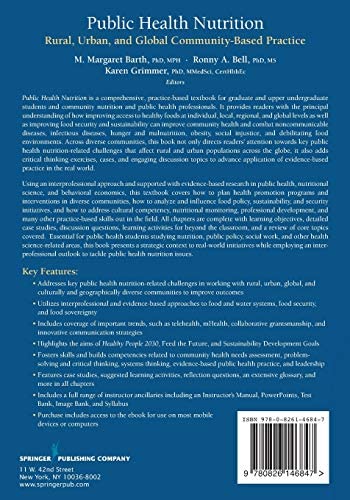
The elderly population is heterogeneous and has different health needs. It is necessary to assess the effectiveness in integrated care for this age group using frailty scales. These scales can also be used to identify high-risk people. There are many types of frailty, including mild, severe, and moderate physical frailty. There are also cognitive and psychological problems. To improve the quality life of frail elderly, there are many options, including exercise, dietary modifications, psychosocial program, and cognitive training.
Frailty is an age-related condition that has adverse effects on health outcomes, such as falls, fractures, hospitalization, and early mortality. Frailty is associated with increased vulnerability, which is the result of decreased physiological reserve and functional impairment. It has been found that people who have been diagnosed with frailty have a higher risk of early mortality, nursing home admission, and hospitalization than those who do not. Integration care for this group requires a team, led by primary care physicians.

Frailty Phenotype can be used to determine the extent of frailty. This model is based on the concept that progressive impairments occur due to metabolic and physiological changes, rather than the accumulation of illness. There are several assessments that can be used to identify frailty. The PRISMA7 questionnaire is one example. InterRAI HC Frailty Scale can also be a useful tool. This scale was designed for primary care. It was evaluated by an aging physician.
Various types of studies have been conducted to evaluate the efficacy of frailty assessment scales. Some studies used quantitative research while others used observational and cross-sectional studies. Multiple scales were identified including the Edmonton frail, the Short Physical Performance Battery and the Frailty Phenotype. These were all rated using the Cochrane Risk of Bias Tool to Randomized Trials.
Multiple profiles of frailty have been identified. The profile E was one example. It was characterised by social problems and poor health. The profile F was characterized by multiple abnormalities, while the profile G had a relatively normal physical and psychological profile.
Frailty assessment scales are not uniform across the world. They vary in how they measure, who participates and what domains of functioning they use. They may not be appropriate in certain healthcare settings. These scales are becoming increasingly common in high-income nations, especially where they are easily accessible. Nevertheless, there is a need to evaluate the feasibility and the accuracy of these tests.

A personalized approach to managing frailty is important for many reasons. Effective frailty management requires the involvement of a skilled and motivated primary caregiver. The ability to educate and train the workforce can also be beneficial. Also, it is imperative that the implementation of these scales be standardized, and the consensus of all relevant healthcare levels should be achieved. This can be achieved by further research and the development of guidelines.
FAQ
How can I control my blood pressure?
You must first determine the cause of high blood pressure. Then you need to take steps to reduce this cause. This could be as simple as eating less salt, losing weight (if necessary), or even taking medication.
Also, make sure to get enough exercise. If you don’t have enough time to exercise regularly, consider walking more often.
Consider joining a gym if your current exercise regimen is not satisfying you. You'll probably want to join a gym where there are other people who share your goals. You will find it easier to keep to a workout schedule if you have someone to watch you at the gym.
How do I determine what's good?
Listening to your body is essential. When it comes to your body's needs for exercise, food, or rest, it is the best. Your body will tell you what to do so that you don't go overboard. Be aware of your body and do what you can to keep it healthy.
Does being cold give you a weak immune system?
Cold weather can cause a decline in your immune system. Your body makes less white blood cell to fight infection. But, cold makes you feel better. Your brain releases endorphins that reduce pain.
What are the 10 best foods to eat?
The top 10 best foods are:
-
Avocados
-
Berries
-
Broccoli
-
Cauliflower
-
Eggs
-
Fish
-
Grains
-
Nuts
-
Oats
-
Salmon
Statistics
- According to the Physical Activity Guidelines for Americans, we should strive for at least 150 minutes of moderate intensity activity each week (54Trusted Source Smoking, harmful use of drugs, and alcohol abuse can all seriously negatively affect your health. (healthline.com)
- WHO recommends consuming less than 5% of total energy intake for additional health benefits. (who.int)
- According to the 2020 Dietary Guidelines for Americans, a balanced diet high in fruits and vegetables, lean protein, low-fat dairy and whole grains is needed for optimal energy. (mayoclinichealthsystem.org)
- In both adults and children, the intake of free sugars should be reduced to less than 10% of total energy intake. (who.int)
External Links
How To
10 tips for a healthy lifestyle
How to maintain a healthy lifestyle
We live in a fast-paced world that makes it difficult to get enough sleep, consume too much alcohol, smoke cigarettes, and eat too much. We don't pay enough attention to our body's health.
If you are working full time, it can be difficult to keep a healthy diet and exercise regimen. Stress makes it even more difficult. Our minds tell us we can't handle this situation any longer so we feel guilty and give in.
If you feel like something is wrong with your body, then it probably is. You should see a doctor and ask him/her what he/she thinks about your current condition. If there is nothing abnormal, then it might just be stress from your job.
Some people think that they are lucky because their jobs allow them to go to gym regularly or they have some friends who help them to keep fit. They are fortunate. They have no problems. They got everything under control. I wish everyone could be one of them. Many of us aren't able to find the right balance between our personal and professional lives. Many people have bad habits that lead to illnesses such as heart disease and diabetes.
These tips can help you improve your lifestyle.
-
Get enough sleep, minimum 7 hours, maximum 8 hours. It includes sleeping in the correct positions and avoiding caffeine before bed. Caffeine blocks melatonin hormones, making it difficult to fall asleep. Your bedroom should be darkened and cleaned. If you work late at night, make sure you have blackout curtains.
-
Take a balanced breakfast. Avoid sugar products, fried foods and white breads. Include fruits, vegetables, and whole grain for lunch. For afternoon snacks, it is recommended to eat foods high in protein and fiber like nuts, seeds and beans, fish, dairy products, and fish. Avoid unhealthy snacks like chips, candies, cookies, cakes and sodas.
-
Drink plenty of water - Most of us don' t drink enough water. Water aids in weight loss, skin health, digestion, and keeps our skin young and supple. Drinking six glasses of water daily will help you lose weight faster. You can check the color in your urine to see how well you are hydrating. Yellow means dehydrated; orange means slightly dehydrated; pink means normal; red means overhydrated; and clear means highly-overhydrated.
-
Exercise - Regular activity can increase energy and decrease depression. Walking is a good way to get fit and improve your mood. Even though walking looks simple, it requires effort and concentration. Walking requires your brain to be focused on the task at hand, and you need to breathe slowly and deeply. For between 100 and 150 calories, a 30 minute walk can be enough to burn about 100 to 150 calories. Start slow and work your way up. Stretching is key to preventing injuries.
-
Positive thinking is vital for mental health. When we think positively, it creates a happy environment within ourselves. Negative thinking can drain our energy and create anxiety. You can stay motivated by thinking about what you want to accomplish. You don't have to take on all of the new tasks at once. Break them down into small steps. Be aware that you will fail at times, but don't despair. Just get back up and start over.
-
Learn to say no. Too many people are so busy they don't even realize how much wasted time they waste on unnecessary tasks. It is important that you learn to say no when necessary. Not saying "no" is rude. It is just saying no. You can always find other ways to complete the job later. You should set limits. Ask for help. This work can be delegated to someone else.
-
Take care of your body - Keep track of your diet. Healthy eating habits will increase your metabolism and help you lose weight. You should avoid eating too many oily and heavy foods, as they can increase your cholesterol. Three meals and two snacks are a good rule of thumb. Your daily calories should range from 2000 to 2500.
-
Meditate - Meditation can be a great stress reliever. You can relax your mind by simply sitting still and closing your eyes. This will help you make better decisions. Practicing meditation regularly will make you calmer and happier.
-
Do not skip breakfast. Breakfast is the most important meal of each day. Skipping breakfast can lead you to overeating at lunch. It is never too late to eat a balanced breakfast as long as you eat within 1 hour of waking. A healthy breakfast can boost your energy levels and help you control your hunger.
-
Clean eating is key to a happy mood. Avoid junk food and food that contains artificial ingredients or preservatives. These products keep your body acidic and trigger cravings. Fruits and vegetables are rich in vitamins and minerals that improve overall health.
-
***